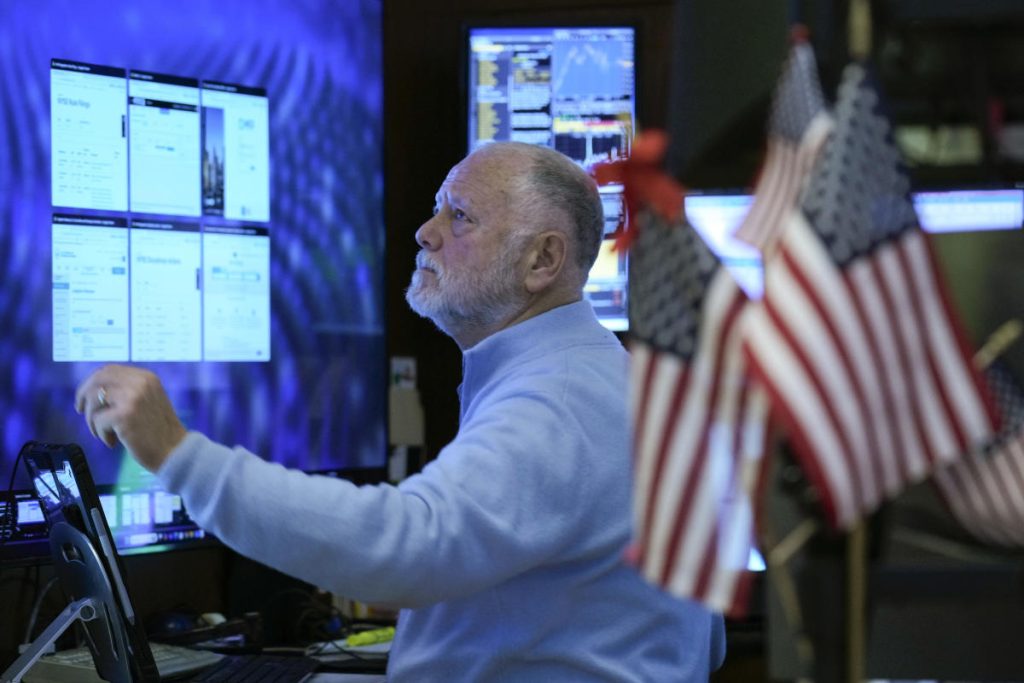
Stocks on Wall Street surrendered early gains and closed broadly lower Friday after the White House said President Donald Trump would impose promised tariffs on key U.S. trading partners.
The S&P 500 fell 0.5% and the Nasdaq composite dropped 0.3%. The indexes, which had posted solid gains in morning trading, posted their first weekly loss in three weeks.
The Dow Jones Industrial Average fell 0.8%.
Trump will put in place 25% tariffs on imports from Canada and Mexico and 10% tariffs on goods from China effective Saturday. The White House provided no word on whether there would be any exemptions to the measures that could result in swift price increases to U.S. consumers.
The selling was broad, with about 75% of the stocks in the S&P 500 closing lower. Technology and energy companies accounted for a large share of the decline.
“If Trump says it’s something that could happen by tomorrow that doesn’t leave a lot of room to move,” said Sam Stovall, chief investment strategist at CFRA. “There’s just so much uncertainty associated with elevating tariffs on our three major trading partners.”
The earlier gains on Wall Street had helped shave losses from the start of the week over worries that the artificial-intelligence boom may not require as much investment as thought.
Apple reversed course from market leading gains to a loss of 0.7%. The company had reported stronger profit for the latest quarter than analysts expected. Wall Street’s most valuable company, and thus the most influential on the S&P 500 and other indexes, said sales of iPhones dipped. But revenue for its services businesses, such as AppleCare and its app store, rose to a record.
KLA, a supplier to the electronics industry initially rose after reporting profit and revenue that topped analysts’ expectations, but then closed down 0.6%. The company, which credited its results on expanding artificial-intelligence and high-performance computing investments, fell 6.3% on Monday. That’s when tech stocks around the world tumbled, after a Chinese upstart, DeepSeek, said it developed a large language model capable of competing with the world’s best, without having to use top-flight chips.
The disruption raised questions about whether all the investment expected for AI chips, data centers and electricity is really needed.
Shares of Nvidia, considered the poster child for the AI frenzy, fell 3.7%. They dropped 15.8% for the week. Its CEO, Jensen Huang, was expected to meet with Trump Friday in Washington.
Worries that tariffs could end up driving inflation higher helped push long-term bond yields higher, including the 10-year Treasury, which rose to 4.54% from 4.52% late Thursday.

